What is a Microsoft Student Partner? What do they do? Why do they do it? What do they get out of it? And how do I become one?
Some of you may know I’m an MSP f
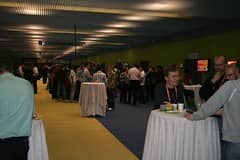
How…
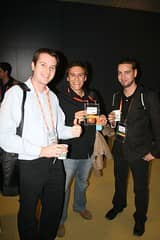
The program itself is implemented differently in different countries, some countries interview you like an employee and other’s will just take a look at your community work and award you an MSP for doing that.
Who…
is a good MSP? Well as usual “it depends”. But there are things that MSPs have in common all over the world. It’s their passion for:
1. Technology
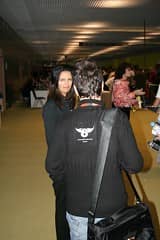
2. Communities
On of the goals of the program is to reach out into the community and spread
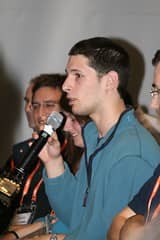
3. To think that one step further than the rest
You are committing to activities and tasks and seeing no paycheck in return. But you wouldn’t even think of asking for one, because your return on your investment is so much more in the long term and you know that.
What…
do we do? And again “it depends”. Usually some kind of community work is involved. A lot of MSPs run user groups, do presentations and workshops for their peers, participate or mentor for the Microsoft Imagine Cup… The limit is basically your imagination. You can’t do anything wrong. It’s a great chance to test out your skills, form your personality and basically do a lot of self marketing.
Depending on where you are, your integration into your local Microsoft ecosystem may be different. You could have a two level hierarchy where MSPs are self-organized through Senior MSPs, but usually the hierarchy comes together at the ADE - the academic developer evangelist or academic relations manager (again depending on your location). He is your primary link to Microsoft, he’ll help you where he can. But with time you’ll build
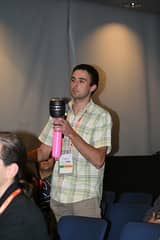
You need to be studying to be a MSP. So once you have graduated, you are finished with the MSP program. After that a lot of MSPs start at Microsoft and most of them continue in the Microsoft community and use the network they’ve built. Currently an alumni program is being developed that will help the MSP process to fade-over into a long-running link between former MSPs and Microsoft.
Why…
…do we do it? The question doesn’t arise when MSPs meet. But it is certainly often asked when you tell outsiders about the program and possibly even try to recruit them. “What’s in it for me?” If you’ve already told them about the program, the possibilities and experiences and they still ask that question. Then - in my opinion - they aren’t the right people for the program anyway.
Take the Tech-Ed as an example. The program makes it possible for me to visit these otherwise (for students) quite unaffordable events and of course you could interpret that as a monetary ROI for my efforts (and each year I think I need to do more next year just to balance my carma out *g*). But it goes much further than that.
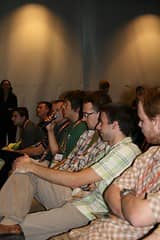
The program has been going for some years now and has gained a tremendous reputation within the product groups at Microsoft. They are eager to work with MSPs in all kinds of areas - they know you are the next generation of users and who better to ask than you. Early product development feedback and they actually listen to you!
Maybe you’d like to work for one of the groups in Redmond. How about an internship at Microsoft? Well you’re surely better off applying as an MSP than anyone else. You already have your foot in the company, your recommendation letters from your local subsidiary and a great reputation (otherwise you wouldn’t be an MSP). If you were recruiting - where would you look for new people first? Strangers, or the people who are committed to your technology.
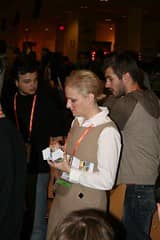
The EMEA summit 2007
Each year a number of MSPs are invited to Tech-Ed to get up-to-date on

During the first part of the summit Rob Miles - yes, THE Rob Miles. Gosh I’d like to be like him :) that joke never wears off - came by to talk a bit about how he became an MVP. A lot of MSPs become MVPs (and some even already are). Next up was Karen Young who is the Group Regional Manager for EMEA and APAC for the MVP program. (Just my point from above, when do you get to meet people like this other than as an MSP?). She was followed by Holly Peterson who designs recruitment programs for the development centers in Europe and Israel for Microsoft. Now you can’t get any closer to an internship or job than that, can you? By the way, it’s a common mistake that the only development jobs are in Redmond. There are a number of development centers in Europe as well, such as in Ireland.
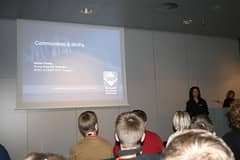
A number of top notch Tech-Ed speakers then joined us for a Q&A panel and they all bravely answered our questions.
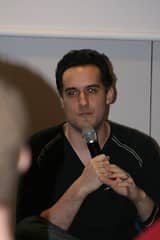
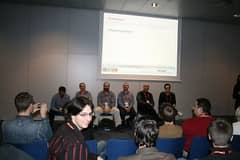
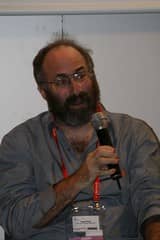
But then it was time to head over to the Bowling center. Some MSPs like to do

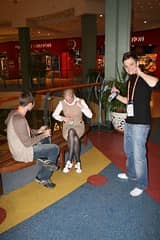
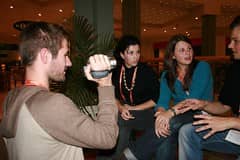
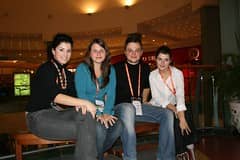
(A little bit of cross-marketing: check-out these beautiful young women over at Channel 8 - if their interview is not online yet, check out the other content and come back later. - I must put some of the things I learned in those marketing classes to good use.)
They also interviewed Holly but the taping turned more into an interesting equal dialog between Holly and Eric with him talking about his internship and Holly talking about the process of becoming an intern.
Karen joined Christian, me and some others for a last bowling game. You can guess who won by looking at the pictures.

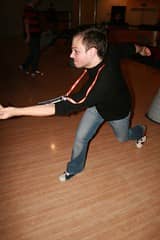
Summary
The MSP program is a great opportunity for students to become connected to Microsoft. Both partners thrive from that relationship and the experiences you make as an MSP are amazing. If you’re interested in becoming one, contact your local Microsoft Academic team, if you’re interested in knowing more about it, post a comment or ask your local MSP if you have one.
Go MSPs go! We rock! Some more photos here.
Good night.
Technorati Tags: MSP , Microsoft Student Partners , Microsoft Academic , Tech-Ed Europe , MSP Summit , Bowling , Channel 8